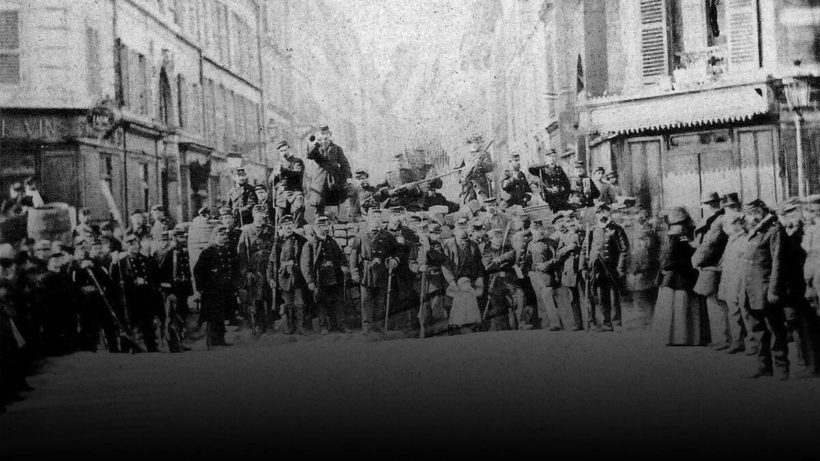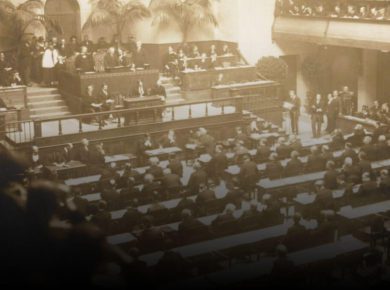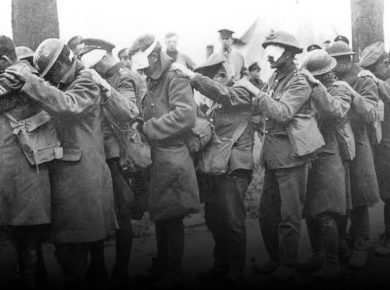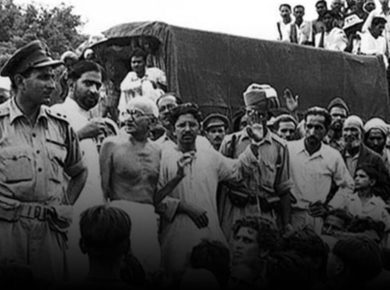First International & Paris Commune
The First International, 1864
- With the formation of International Working Men’s Association, or First International, as it is called, it has been said, “Socialism stepped on the stage of history as a world movement”.
- The meeting at which it was formed took place in London and was attended by delegates from Britain, France, Italy, Germany, Poland and Switzerland.
- Marx drafted ‘An Address to the Working Classes’ which along with the General Rules outlined the principles & aims of the International.
- The emancipation of working classes, it was declared, must be won by the working classes themselves.
- The central aim of the International was declared to be the total ‘abolition of all class rule.
- The universal character of the struggle of the working class was emphasized. The Address ended with slogan, as in Communist Manifesto, “Proletarians of all lands, unite!”
Impact of First International
- From the time of its formation, the International was considered by governments of that time as a menace & attempts were made to exterminate it.
- It was persecuted & declared illegal in many countries.
- During the short period of its existence, the International exercised a tremendous influence on workers’ movements in Europe & North America.
- It played a particularly important role in creating bonds of international solidarity by arranging aid from workers of many countries in support of the workers’ struggle in any particular country.
- Though its membership was not very large, it was feared by the rulers for the sense of workers’ solidarity that it had succeeded in creating.
- One of its finest examples was evidenced at the time of the war between Prussia and France in 1870.
- The war was condemned both by the German and French workers as a crime committed by the French and Prussian dynasties.
- The French and German branches of the International sent messages of good wishes and solidarity to each other.
The Social Democratic Party in Germany in a message to the French workers, said, “….…we shall never forget that the workers of all nations are our friends, and the despots of all nations are our enemies.” After the defeat of the French army, the German government announced its intention to annex Alsace-Lorraine from France.
The German workers protested against this and there were many demonstrations in various cities of Germany. All the leaders of German workers were arrested on charges of treason.
The Paris Commune, 1871
- The war between France and Prussia led to another important development – an uprising by the workers of Paris and the seizure of-power by-them.
- Within a few weeks of the war between France and Prussia, the French army had been defeated & French emperor Louis Bonaparte had been taken prisoner.
- A new government had come into being and had declared France a republic.
- This government was dominated by the propertied classes & had agreed to Bismarck’s terms for truce including the surrender of Paris, cession of Alsace-Lorraine & payment of a huge war indemnity.
- The workers of Paris regarded the surrender by the government as treacherous. They refused to surrender.
- The government withdrew from Paris and asked for German help to crush Paris.
- Workers of Paris elected a council which assumed the title of the Paris Commune.
- It was elected by universal adult franchise & represented the workers and the lower middle classes of Paris.
- All public offices were elected by universal suffrage with people having the right to recall.
- The Paris Commune was the result of an upsurge in which the workers had played the dominant role, the result of the first workers’ revolution in history.
- It was soon drowned in blood.
- The French government which had established its headquarters in Versailles attacked Paris with a huge army.
- In this they received the help of Germany also.
- The battle led to termination of Commune.
- The French government called it the victory of order, justice and civilization.
The demise of 1st international
- The extermination of Commune was followed by systematic attempts to destroy the International in almost every country of Europe.
- The International had organise support for the Commune & after its destruction was engaged in aiding refugees from Paris.
- It appeared to gain strength in many countries of Europe inspite of the fact that the revolution in Paris had been suppressed.
However, soon it collapsed as a result of internal differences as International was not a homogeneous organization and represented many different trends in the workers’ movement. Due to differences on aims and methods, it was split in 1872 and was formally dissolved in 1876.
In the meantime, however, the socialist parties in many countries of Europe had begun to grow and after a few years they were to unite and form another International.











1 comment
thankyou very much to share the knowledge.